It was after eleven when my phone rang, and the calm voice on the other end of the line confirmed what I had sensed earlier that evening.
“Hello Thomas… your dear Trudy has just taken her last breath”, the nursery home attendant said. “I think she’s been waiting for you.” Less than an hour before, I had seen my beloved 95-year old ‘auntie’ alive, and right after I got home, she must have left this physical existence. Our strong bond allowed me to enjoy a great time of loving friendship and inspiring thoughts that helped me shape my life and career. Like she always encouraged me, I hope that this personal story will encourage you to achieve what you want to achieve.
‘Classic hits are more than songs with a Burn or Like score’
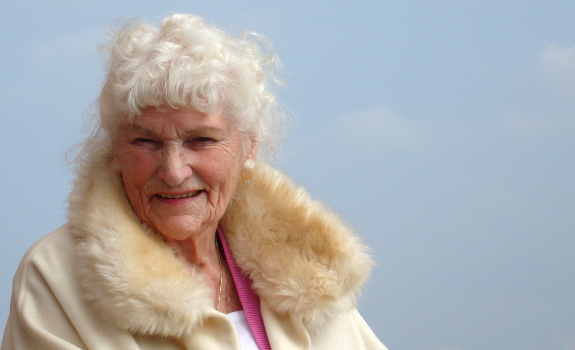
The amazing way in which Trudy, here in December 2009, responded to songs that I played and sang for her, shows the impact of memories attached to music (image: Thomas Giger)
Make your music matter
Refusing to eat or drink for about a week already, while her body was still recovering from an anaesthetic that she got a few weeks earlier for a surgery after she fell down and broke her hip, Trudy had been mostly in a resting state. At least in the evening, during my daily after-work visit. She kept her eyes closed for days, probably to save energy, but she clearly heard me when I spoke to her or sang for her. Because she would sometimes smile, lift her eyebrows, or squeeze in my hand (with, in the beginning, such force that I was surprised how on earth it was possible).
Streaming YouTube on my phone, I could find & play familiar songs from the youth years of her life, from Somewhere Over The Rainbow and What a Wonderful World to Mozart and The Ramblers, a Dutch post-war big band in which her late husband Fred played sax. He was also member of the Metropole Orchestra. Trudy has attended many concerts, travelled with Fred all over Europe, and even met members of the Dutch royal family. She loved a lot of the nostalgia songs that I played. I put the phone speaker close to her ears. So even without her hearing aid, she could understand them well.
Respect your artist material
With her eyes closed, she sometimes raised one arm, and moved her hand and fingers through the air, like a conductor! One evening, when I played Glenn Miller’s In The Mood, I was surprised by the heavy emotion it triggered. She winced her face, as if she was in pain. I was about to alert the nurse, when Trudy made a hand gesture that said: ‘no, just turn it off’. Then it struck to me. This could also be a reflection of a feeling, based on a memory. Did she just recall some emotional pain that she connected to hearing (or dancing to) this song in the past? Was she remembering a lost love? I quickly played something else, and noticed her relaxing again.
It made me realise the astonishing power of sound that we broadcast on the radio. Especially classic hits are more than songs with a Burn or Like score. They represent memories — all kinds of different recollections. So we should treat the music with dignity, and carefully consider before we talk over lyrics, cut off tracks, or edit out parts. Trudy’s caregivers liked my idea of playing music for her, and from then on they would sometimes turn on the old transistor radio in her room. I had tuned it to an easy-listening station, so she would hear a pleasant soundtrack.
Cherish your loved ones
That evening, I was her DJ one more time. I put on music, and said: “I’m Thomas; I’m here with you”. Then it happened. Slowly, Trudy opened her eyes! During the hours that I sat beside her, we looked at each other all the time. I kissed and held her hand. She didn’t squeeze it anymore, and didn’t move it to the music anymore either. But she had the strength to stay with me, after a week without food or fluids (except for a last resort IV, which the doctor had put to an end a few days before, as it seemed to have no real effect). I gently touched her forehead, softly cuddled her shoulder, and lovingly looked into her eyes. Her breathing gradually moved faster, but with longer intervals in between. That was a signal.
She looked back at me full of compassion, and sometimes seemed to wink as if she wanted to say: “No worries, love, all is well”. I remember thinking: ‘you might go tonight’, and feeling a lot of mixed emotions flowing through me. I thought, and also said aloud: “You know that I would miss you incredibly, but if you want to go, you can. It’s okay.” Before walking out, I softly spoke into her ear: “Have a good night, love, and I hope to see you tomorrow” (as they had told me that she might still live a few days). When the night nurse went to see her after, all was normal, but when she checked with her again about fifteen minutes later, one of the most beloved people in my life re-emerged into what I believe is Source Energy.
‘While it can be fun to be popular, it will be rewarding to be valuable’
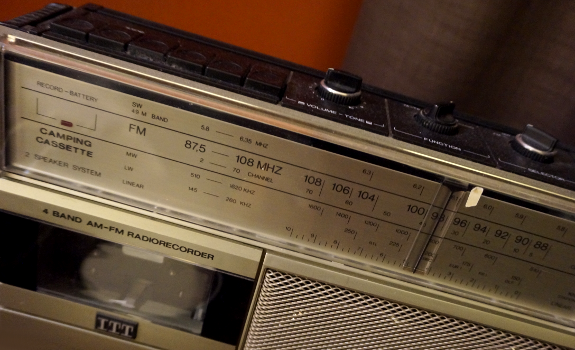
To make radio that is worthwhile listening, you need to feel your own worth (image: Thomas Giger)
Be your listener’s friend
I am speaking of ‘aunt’ Trudy because she feels like being part of me and my family, although she genetically isn’t. I just happened to be the person answering an ad that said: ‘neat room with a kind landlady’ when looking for a place to stay in Hilversum during the radio internship of my journalism course. I found that this good-hearted, extraverted widow rented her second bedroom not only to make some money, but also to enjoy social company. She was a people person, always opening her door to friends and neighbours who liked a cup of coffee or tea (plus something from her cabinet full of chocolates and sweets that everyone knew to find). We got along from the get-go. No generation gap whatsoever.
Radio can be a friend to listeners, and offer companionship to people who are (or feel) alone, like a dementia patient in a nursery home may feel. Even if Trudy received frequent visits from friends and family, only she knows how it felt during the rest of the day, sitting in a shared living room with people who are all in a different stage of their journey. Sometimes, the nurses would put on the radio as a mood enhancer. You never know who listens to you when you open up the mic. They’re not necessarily those modern & active thirty-somethings that your station might be targeting. And even they have their challenges. Use every opportunity to give your audience a moment of happiness!
Become your audience’s family
Trudy was a very caring person, and I loved to return the favour. I helped her with chores at home; she cooked dinner for me after an intensive day at the station. I drove her to the grocery store; she brought a cup of tea and a plate with slices of apple, pear, banana, melon and some grapes up to my room while I was studying. She was like a second mom to me, and I was like the son she never had. Similar, it’s great to be a friend for your listeners, but when your personality shows are built around a consistent team that is heard on your station for several years, then your morning show cast (or your drive time couple) begins to feel like family to your audience. Like Trudy felt to me; like I felt to her.
When you get your listeners to love you by building that one-on-one connection, you’ve created a successful brand. Speaking of branding: standing out matters! Flamboyant and classy is what distinguished Trudy from others. She had a refined taste, and always wanted to look the part. Years after her husband passed, she still went out to a Saturday lunch or a Sunday church event, dressed like a movie star with her fur coat and pink lipstick. You want your station, show and personality to have a recognisable and (in a positive way) even slightly eccentric character as well. Music can be found anywhere these days. Personality is what makes radio ‘radio’.
Value your own existence
Like Trudy and I cared for each other, you can care for your community. It’s cool that your audience hears your voice on air, and sees your face on webcams, social media and event stages. How important is it, really? While it can be fun to be popular, it will be rewarding to be valuable. You add value to your station by providing value for your audience, with one remark: you can only give real value to others when you first assign real value to yourself. Success comes after you (start to) love life, love others, and love yourself. It is the master key to being happy, healthy & wealthy. When you emanate this vibration of love and joy, then things, events & people that give you that same feeling are soon going to manifest themselves. In radio terms: whatever you’re broadcasting (by your thoughts) comes back to you!
Trudy pampered my stomach with healthy food (veggies every day), and filled my mind with positive input. That was necessary, as I was doubting myself: ‘There are not many job openings, just many budget cuts. I don’t want to go back to local radio, and I wish to stay in Hilversum after my internship, but how?’ (Observe: I was focusing on what I did not want, instead of putting my attention on what I did want instead.) She said: “It will work out. You are talented, and you just have to let the right people know. You can even live here for free, for as long as you want.” I got back to thinking positive, and a good-feeling mindset combined with true persistence soon attracted a job. Trudy also encouraged me to pursue my dream of becoming a writer. I credit her for at least half of my achievements.
‘Loving inspiration is a priceless gift’
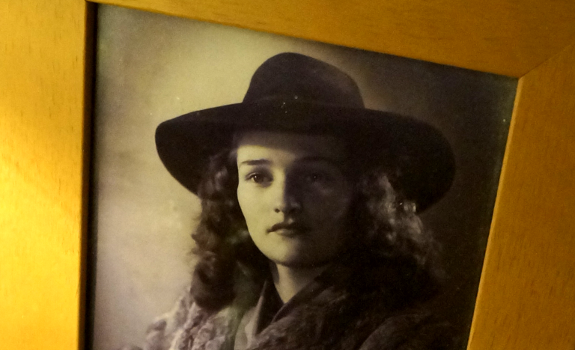
In loving memory: Truus van Ingen, December 20, 1921 – March 14, 2017 (image: Thomas Giger)
Serve your audience well
While I lived at Trudy’s home, her sister in law once said to me: “This is your lottery ticket”. And she was right. I feel high appreciation for her unconditional love and care, even after I found my own place to live. I sometimes came home from a business trip, finding my bachelor apartment clean and tidy again (and my plants still alive). And when she needed help, I was there for her, too. In the months before her move to the nursery home, she started to forget eating. So I prepared breakfast and cooked dinner for her, almost every day. I did it with love. She would have done the same for me. Her greatest influence, apart from her love and kindness, was believing in me. Loving inspiration is a priceless gift.
Like she inspired me, I love to inspire you to make the most of your life and career. You really help your listeners when you broadcast positive & meaningful things on your station and in your show. Offer your audience value, even if you do it just between the lines. Transmit positivity. People will feel that vibe, as radio is much more than a soundtrack. Radio is a one-to-one exchange of emotion. Because of the way people consume radio, you’re talking straight to their minds & hearts; you’re basically touching their soul. Being on air (or producing content that goes on air) is a privilege. Like Trudy made a difference in my life, you can make a difference in others’ lives. That value makes radio everlasting, like love.

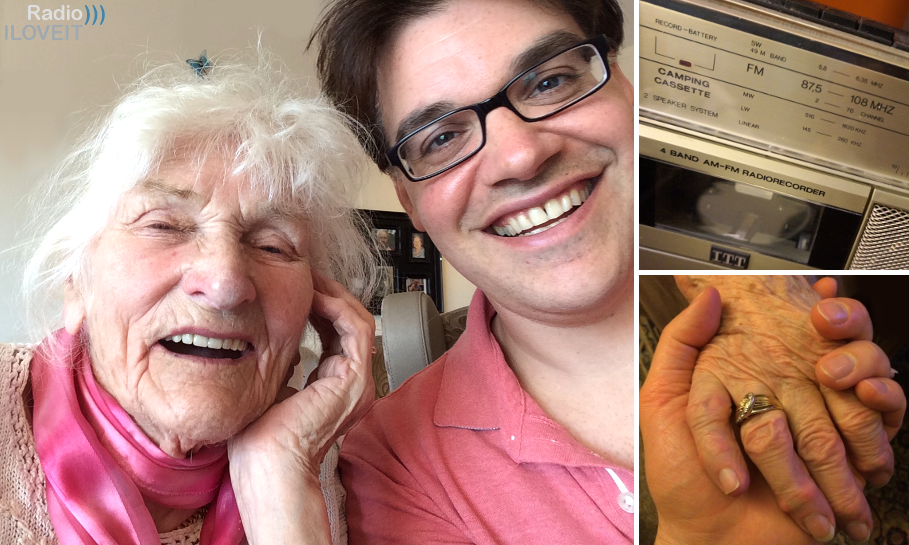
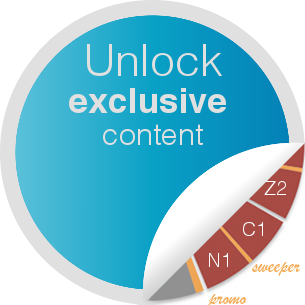



Add Your Comment